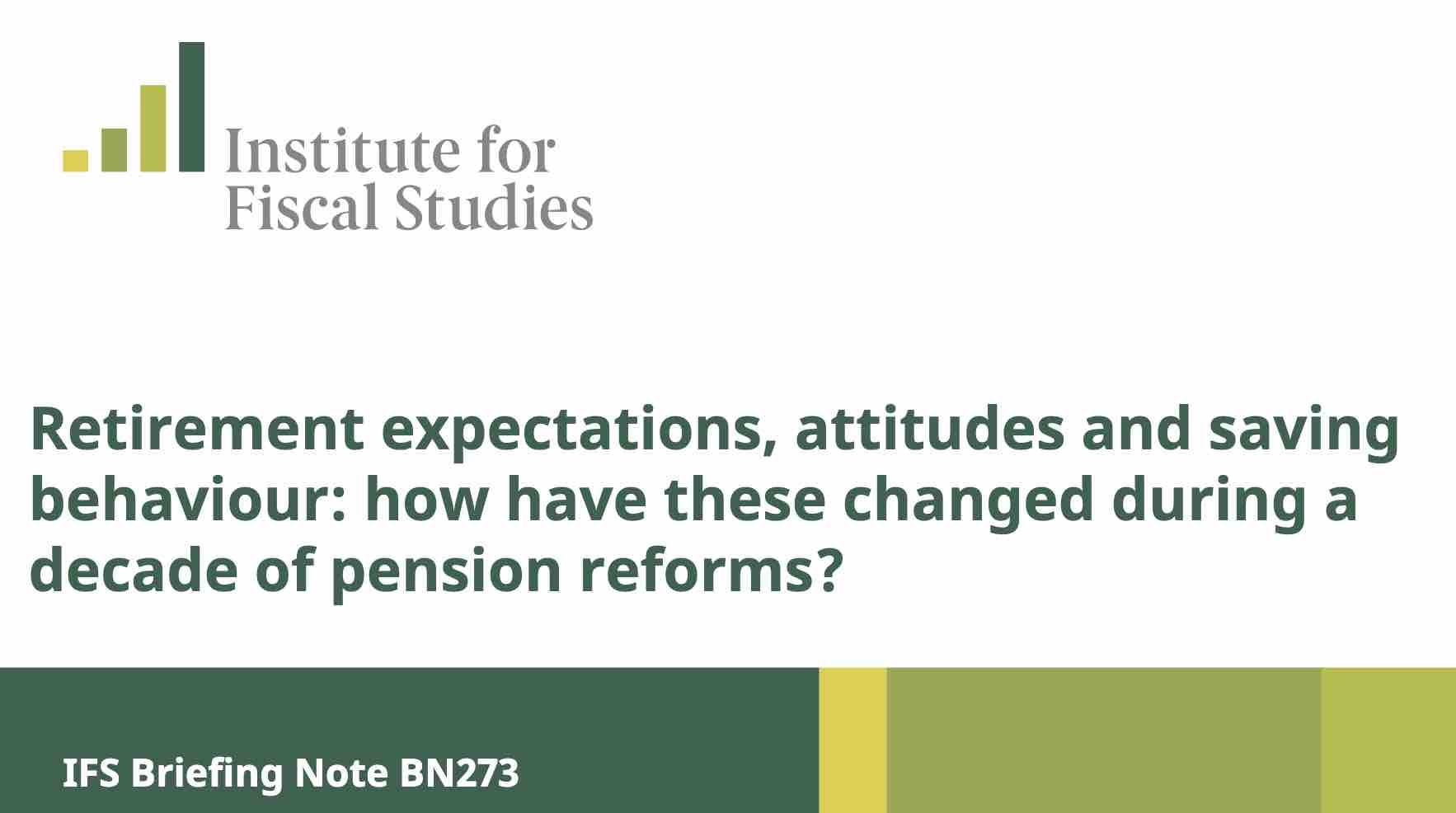Pension savers are more likely to have a pension than 10 years ago but more are expecting to retire later than their parents’ generation.
According to a study by the Institute of Fiscal Studies people are now much more likely than previously to be planning for a retirement age that is above age 65.
Of those expressing an expectation, 1 in 5 people aged 40–54 in 2016 to 2018 (21% of men and 20% of women) reported expecting to retire at age 67.
This compares with less than 1% of men and women surveyed a decade earlier.
The IFS says the increases in expected retirement ages are likely to be in large part a response to increases in the state pension age, which was 67 for those aged 40–54 in 2016 -18 but 65 or 66 for those aged 40 - 54 a decade earlier.
Despite men and women in this age group now having the same state pension age, women on average still expect to retire earlier, by almost 1 year (at age 64.2 compared with 65 for men).
The average age at which men and women aged 40 - 54 expect to retire increased substantially between 2006 and 2017, says the IFS, by 2.1 years (from 62.9 to 65) for men and 2.4 years (from 61.7 to 64.2) for women.
The IFS also found that confidence in the adequacy of retirement incomes has increased.
The proportion of individuals confident that their income in retirement will provide the standard of living they hope for – although still low at only just over half – increased by 11 percentage points over the decade to 2017 (from 42% in 2008 to 53% in 2017).
The IFS found a sharp increase in the proportion of private sector employees expecting to receive a private pension in retirement, from 63% in 2013 to 73% in 2017, thanks mainly to auto-enrolment.
Only around half of individuals report that they understand enough about pensions to make decisions about saving for retirement. The IFS says this low level of self-reported understanding has been persistent over the last decade, despite pension reforms and consequent discussion of pensions in the media.
The retirement expectations are among the key findings of two new reports published by the IFS and funded by the IFS Retirement Saving Consortium and the Economic and Social Research Council. The think tank used data from the ONS’s comprehensive Wealth and Assets Survey( WAS), a survey of 20,000 households carried out every two years since 2008.
Rowena Crawford, an associate director at IFS and an author of the report, said: “The last decade has seen a striking increase in the ages that those aged 40 to 54 expect to retire at.”
Nathan Long, senior analyst at Hargreaves Lansdown, said: “Evidence shows people in their 40s and 50s making more precise predictions of when they’ll retire, suggesting a greater awareness than in the past. Boosting understanding needs to be the next step on the country’s retirement revolution.”

